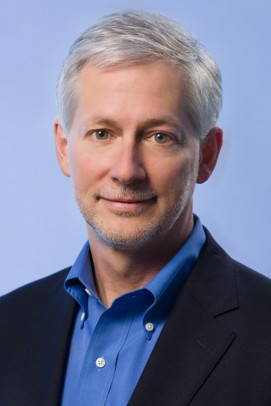Seidel named interim vice president for research
H. Edward Seidel, director of the National Center for Supercomputing Applications at the Urbana-Champaign campus since 2013, was named interim vice president for research for the University of Illinois system.
Seidel, a leading researcher in high-performance computing and relativity and astrophysics, assumed his new role Sept. 1. He succeeds Lawrence B. Schook, who announced in March that he would step down after five years as vice president and return to his research and faculty work in Urbana-Champaign and Chicago.
Killeen said Seidel’s long career as an administrator and award-winning researcher makes him an ideal choice to lead an office that works with the system’s three universities to help manage their nearly $1 billion per year sponsored-research portfolio and oversee technology commercialization and economic development activities.
“I have had the opportunity to work with Ed both in his role at NCSA and at the National Science Foundation,” Killeen said. “Through both experiences, I gained a great appreciation for his broad vision and his ability to build effective interdisciplinary research teams and partnerships.”
Seidel, 58, will retain the title of NCSA director while he holds the interim vice president position.
“I am honored to be asked by President Killeen to work with the entire University of Illinois system to further enhance its research and economic development portfolio, and to return even more value to the state during the search for a permanent vice president,” Seidel said.
He also was among the original co-principal investigators for Blue Waters, a federally funded project that brought one of the world’s most powerful supercomputers to Urbana-Champaign.
Seidel is a Founder Professor in the physics department and a professor in the astronomy department at Urbana-Champaign.
His previous leadership roles include serving as senior vice president of research and innovation for the MIT Skoltech Initiative at the Skolkovo Institute of Science and Technology, directing the Office of Cyberinfrastructure and serving as assistant director for mathematical and physical sciences at the National Science Foundation, leading the Center for Computation & Technology at Louisiana State University, and leading the numerical relativity group at the Max Planck Institute for Gravitational Physics (Albert-Einstein-Institut) in Germany.
He earned a bachelor’s degree in mathematics and physics at the College of William and Mary in 1981, a master’s degree in physics at the University of Pennsylvania in 1983 and a doctorate in relativistic astrophysics at Yale University in 1988.
Seidel will serve during a national search for a permanent vice president. The search will be assisted by an advisory committee chaired by Peter Pfanner, a research professor of urology and director of the UIC Innovation Center.
Categories

